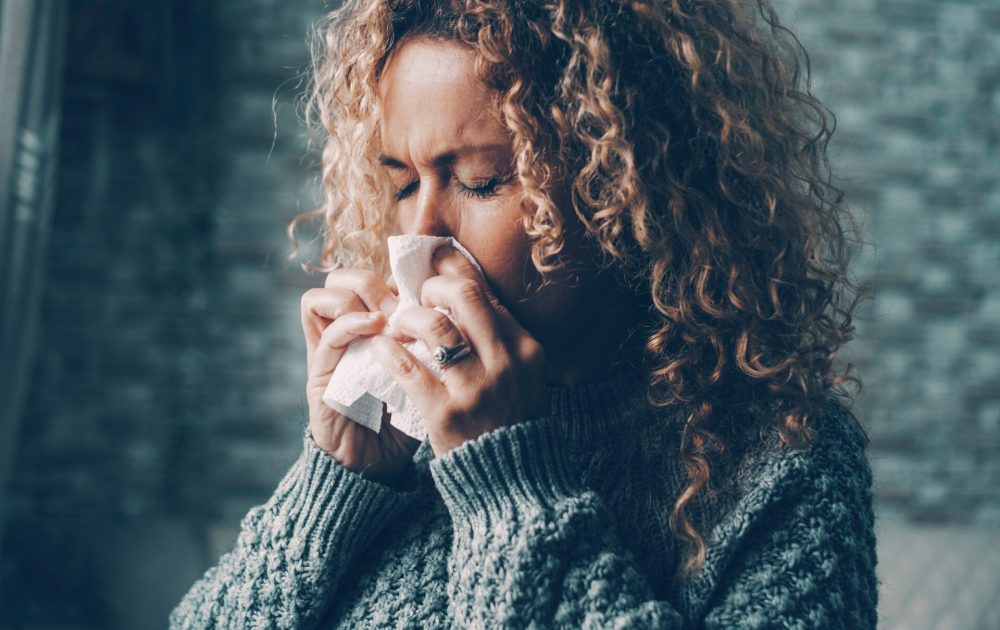Our test tells you which everyday chemicals you've recently come into contact with, and easy steps you can follow to reduce your exposure to them.
What can you do if you get the flu?

For the last two years our health focus has been largely on coronavirus, but it looks like the common cold and flu is back with a vengeance. So, what can you do to make a good recovery if you get the flu or nasty cold?
Eat and drink well
It’s tempting to eat fast, processed, or sugary foods when you feel under the weather, but they might slow your recovery down because they can increase inflammation and reduce the body’s ability to fight infections.
Instead, consider eating a keto diet including meat, fish, poultry and non-starchy vegetables. A ketogenic diet activates sub-set T cells in the lungs that trap viruses and stop them spreading.
Drink some Black elderberry (Sambucus nigra) juice. This has been shown to stop viruses infecting cells and blocks the virus from propagating after the cells are infected. Black elderberry also stimulates the release of cytokines. Honeysuckle tea is worth trying as well because a molecule in the plant represses flu viruses by targeting and killing genes that help the virus replicate.
Garlic may also reduce symptom severity and incidence of getting colds or flu in the first place. Garlic has anti-viral and anti-bacterial properties.
Consider taking the herbal tincture Echinacea at the first sign of illness for the treatment of flu symptoms.
How can you ease your symptoms?
Exercise might be the last thing you want to do if you are feeling unwell. If you’re suffering from cold or flu symptoms don’t overdo it, and focus on more gentle forms of exercise. When you start to feel a little better, it’s worth remembering that regular exercise can help to reduce duration and severity of cold/flu symptoms.
The lining of the nose becomes inflamed and irritable when you have a cold, but nasal irrigation with saline solution can help reduce nasal symptoms. There are saline sprays available at your chemist, but you can also make one at home using salt, sodium bicarbonate, and cooled boiled water.
If you are lucky enough to have regular access to a sauna, it can help reduce reduce incidence of colds.
Stress can make you more susceptible to colds and flu. Try yoga, walking or some meditation if you are feeling stressed or anxious.
Vitamins that help to fight infection
Vitamin D helps to prevent respiratory infections and aids in innate immunity so you might want to consider checking your level of this vitamin and taking a supplement, especially during the winter months.
Cod liver oil is also a good source of vitamin D. You can also get it from sun exposure and dietary sources such as egg and fish. Try getting as much natural light into your day as possible.
Vitamin C is especially good for colds and is easy to boost your levels by eating citrus fruits, kiwi, bell peppers, strawberries, broccoli, tomatoes, and kale contain the most vitamin C. Choose organic where possible.
Zinc may shorten the duration of the common cold and when taken within 24 hours of onset it can reduce duration and severity of symptoms. Food sources include oysters, red meat, poultry, pumpkin seeds, and lentils or it is available as a supplement.
Use of antibiotics
Evidence suggests that antibiotics affect the gut bacteria, and may make the body more vulnerable to the effects of viruses.
As a preventative to flu and colds consider taking probiotics, these can be found in some yoghurts and fermented foods or taken as a supplement. Probiotics boost the immune system function by increasing friendly bacteria.
Environmental pollutants
Exposure to chemicals in our everyday environment can place a burden our body which could also contribute to how efficiently our immune system is working. By switching to organic meat and dairy produce you can reduce your exposure to herbicides and pesticides such as glyphosate.
Further reading
Echinacea courtesy of Hyperhealth
Upper respiratory tract infection regime by kind permission of Breakspear Medical
Information on this site should never be used as a substitute for medical advice from your doctor or other qualified clinician. If you have any concerns about your health, always seek medical advice.